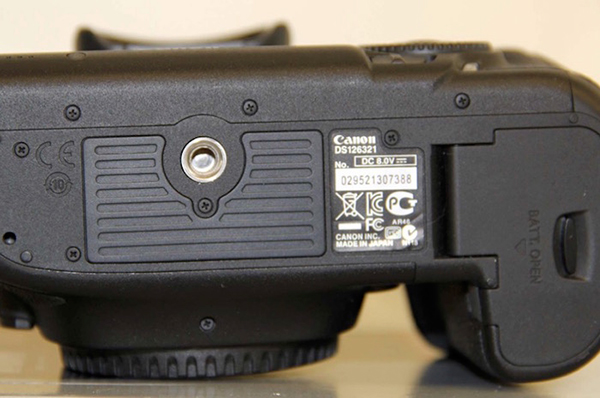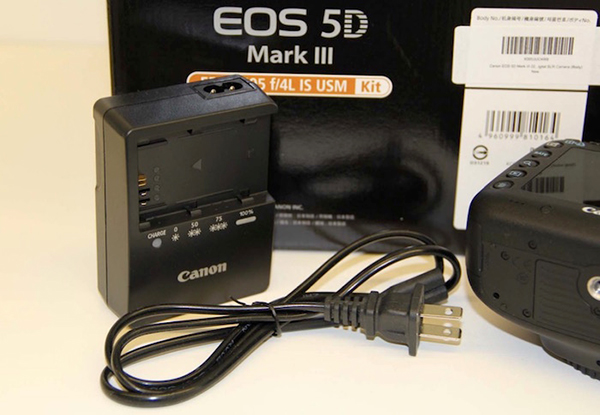Canon USA suing to stop gray-market camera sales in US, seeks damages (And why gray-market exists)
posted Monday, November 23, 2015 at 2:22 PM EST

So-called gray-market cameras can often be found at discounted prices, but Canon USA is bringing legal action against various retailers in the US to force them to stop selling gray market Canon products.
Gray market products are ones imported into a country through unofficial channels. They're not "black market" because there's nothing illegal about doing so, but they're not quite "white" market, either. Products brought in from other countries generally lack warranty coverage, and sometimes won't have properly-certified electronic components. They've been a bone of contention with camera makers for as long as I've been in the business.
First reported by Photography Bay, Canon USA is suing gray market retailers such as Get It Digital, All New Shop, Big Value, Electronics Valley, and more. Canon USA is arguing that their brand is being infringed upon by gray market retailers selling non-US versions of their products in the US market.
Canon USA claims that not only are they being harmed, but consumers are being harmed as well. Canon USA claims that gray market retailers are applying counterfeit serial numbers to cameras for sale, not providing adequate warranty coverage, supplying unofficial packaging and documents with products, and not including UL Certified power supplies and batteries with the gray market cameras. Non-compliant power supplies and batteries can pose safety hazards.

In addition to wanting the sale of gray market cameras in the US to be halted via an injunction, Canon USA is also suing for damages in the form of the profits that gray market retailers have earned through the sale of gray market Canon camera equipment and restitution for costs incurred by Canon USA for having to deal with gray market camera sales, including legal fees. According to Photography Bay, these damages could reach into the millions of dollars and force the gray market retailers named in the lawsuit out of business.

It will be interesting to see how this legal battle plays out. Consumers have thus far been free to take the risks associated with gray market camera purchases, and many of them have been fully-satisfied with their gray market cameras (and their savings). But regardless of savings, selling non-compliant electronics and using counterfeit serial numbers is a serious violation.
To see the full list of retailers named by Canon USA in the lawsuit and legal documents, check out the full article at Photography Bay.
Gray market: What's the beef?
There's a general sense among consumers that the reason gray market exists is because manufacturers are gouging consumers in one country, relative to others: Why not just sell the same product for the same price anywhere in the world?
If you think about it, the idea of "gouging" consumers in any given country doesn't make a lot of sense, because of the competition. If Canon's prices for their products were artificially high in the US market, then what would prevent Nikon from dropping theirs, and so winning more sales? I guess the conspiracy theorists would say it's because a cabal of camera makers get together in a smoke-filled room every month, to set US camera prices. The actual reasons are much more prosaic, though.
The simple fact is that it costs differing amounts of money to operate in different countries; there's different overhead. Part of this is that decisions about how a company operates in a country are generally left up to the national operating entities, like Canon USA, or their counterparts in Japan, Europe, or wherever. Here in the US, Canon's decided that customer service is very important, so have made a huge investment in US-based support, including US-based call centers, multiple US service centers etc. That doesn't come for free, and Canon USA has to pay for it with the proceeds of the cameras and lenses they sell here. Likewise, the dynamics of advertising and sales channels are very different from country to country. For example, Japan's much greater concentration of population, particularly the number living in relatively few major metropolitan areas, makes it much more efficient to market to consumers than here in the US. I've often heard Japanese execs comment on how much easier it is to deliver a message to and educate the consumer population in Japan vs the US.
Cameras and lenses coming into the US through unofficial channels don't support any of this, so sales generated with US advertising end up being fulfilled by gear from other countries. Also, despite the fact that some gray-market sellers are upfront about the fact that the products don't have US warrantees, many aren't, and even people who know their camera lacks a US warrantee will sometimes still try to get it serviced here when it breaks. Likewise, many will call Canon USA's support centers when they have questions. Bottom line, a lot of non-US product ends up landing on Canon USA's doorstep for service, and generating calls that hit Canon USA's call centers for support.
If you think this makes Canon's products too expensive, then you're free to buy a Nikon, Sony, Olympus, etc, and Canon USA has to take the resulting hit on their sales; the same goes for all the other companies as well. Or you can buy gray market and roll the dice; I won't tell you how to live your life. Speaking just for myself, though, I (a) understand the reasons for different pricing in different countries, and (b) wouldn't for a moment trust a third-party warranty on something as complex as a camera or modern lens. Honestly, I might buy a gray-market rolling pin or sweatshirt, if there were such things, but it'd take an absolutely crazy deal to get me to buy a gray-market camera (to the point that I'd accept the likely need to simply trash it if anything went wrong).
(Seen via PetaPixel)